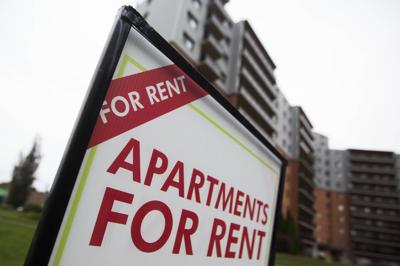Landlords across Canada are more likely to ask personal questions and reject prospective renters who identify as racial minorities, newcomers and people with children, says a new report.Ěý
Based on a landlord discrimination audit and renter survey in 57 communities, including eight in Ontario, researchers found landlords and property managers were about 14 per cent less likely to respond to these groups compared to a white man with no kids when they inquired about a rental unit.Ěý
There was also a 19 per cent decrease in word count when a response came, meaning “markedly shorter replies” to applicants’ questions, said released on Wednesday.
It’s the firstĚýnational audit looking at rental housing discrimination that offers a snapshot at how people of different backgrounds are treated differently in the rental market.
“Marginalized communities or renters are more likely to be discriminated against in areas with lower vacancy rate or in areas with higher income inequality,”Ěýsaid researcher Megan Earle, lead author of the report.
“They’re more likely to be ignored or get shorter responses or be rejected. When they finally get into a place, they have to contend with these additional pieces of discrimination where landlords are expecting them to follow different rules or just making their lives more difficult while they’re in their unit.”Ěý
For the discrimination audit, researchers sent 1,178 messages via email or phone to landlords from rental advertisements on Kijiji and PadMapper and randomly assigned them a message from one of four groups: a white man (286 messages), a South Asian man (299), an Indigenous woman (298) and an Indigenous woman with a child (295).
Racial identity was implied to landlords by the prospective renter’s name. All messages were identical except for the renter name and picture. Researchers then coded the replies.
Landlords’ and property managers’ responses were classified as friendly or unfriendly. Messages were deemed friendly if they replied to questions such as rent price and security deposit, or offered a viewing. Replies focusing on credit score, background check, employment situation and income levels were deemed unfriendly.
Separately, researchers surveyed 600 renters through the crowdsourcing platform Prolific to determine if renters are treated differently by landlords based on aspects of their identity such as gender, race or marital and citizenship status.
Compared to white renters, respondents who identified as racial minorities were asked 28 per cent more personal questions such as their marital status, if they planned to have children, immigration status or whether they smoked. The racialized group were also rejected nine per cent more often.
Survey participants who identified themselves as newcomers to Canada were asked 31 per cent more personal questions and tended to be rejected 10 per cent more often. Those with children were asked for about 11 per cent more pieces of documentation to prove income and employment, and 25 per cent more personal questions.
şŁ˝ÇÉçÇřąŮÍřrenter Jan Cheng spent three months searching for a home before securing an apartment with two friends in the Jane and Finch area in 2022. He had contacted dozens of places but his inquiries often went unanswered even after a viewing.
The York University political science student wonders it had to do with the facts he’s an international student and doesn’t have a regular job, or if he’s ignored because he’s Chinese, or both.
Racialized people and newcomers may not have a credit history and stable employment, “which make them more vulnerable in the housing market,” said the 24-year-old. “This is a systemic issue.”Ěý

York University student Jan Cheng had a tough time securing an apartment and felt discriminated against in the rental housing market because of his race, immigration status and lack of credit history in Canada.Ěý
Jan ChengThe report made a number of recommendations to reduce barriers to accessing affordable and adequate housing. It also urges provincial governments to amend their Residential Tenancies Acts to prevent discrimination during the pre-tenancy period.
“What the study is finding is not necessarily that landlords are saying to people directly that they’re being rejected because of their racial identity,” said Earle. “They would be more subtle about it or they’ll just ignore a particular identity … It’s really hard for people to point to it and explicitly say this is discrimination without research like this.”

































To join the conversation set a first and last name in your user profile.
Sign in or register for free to join the Conversation